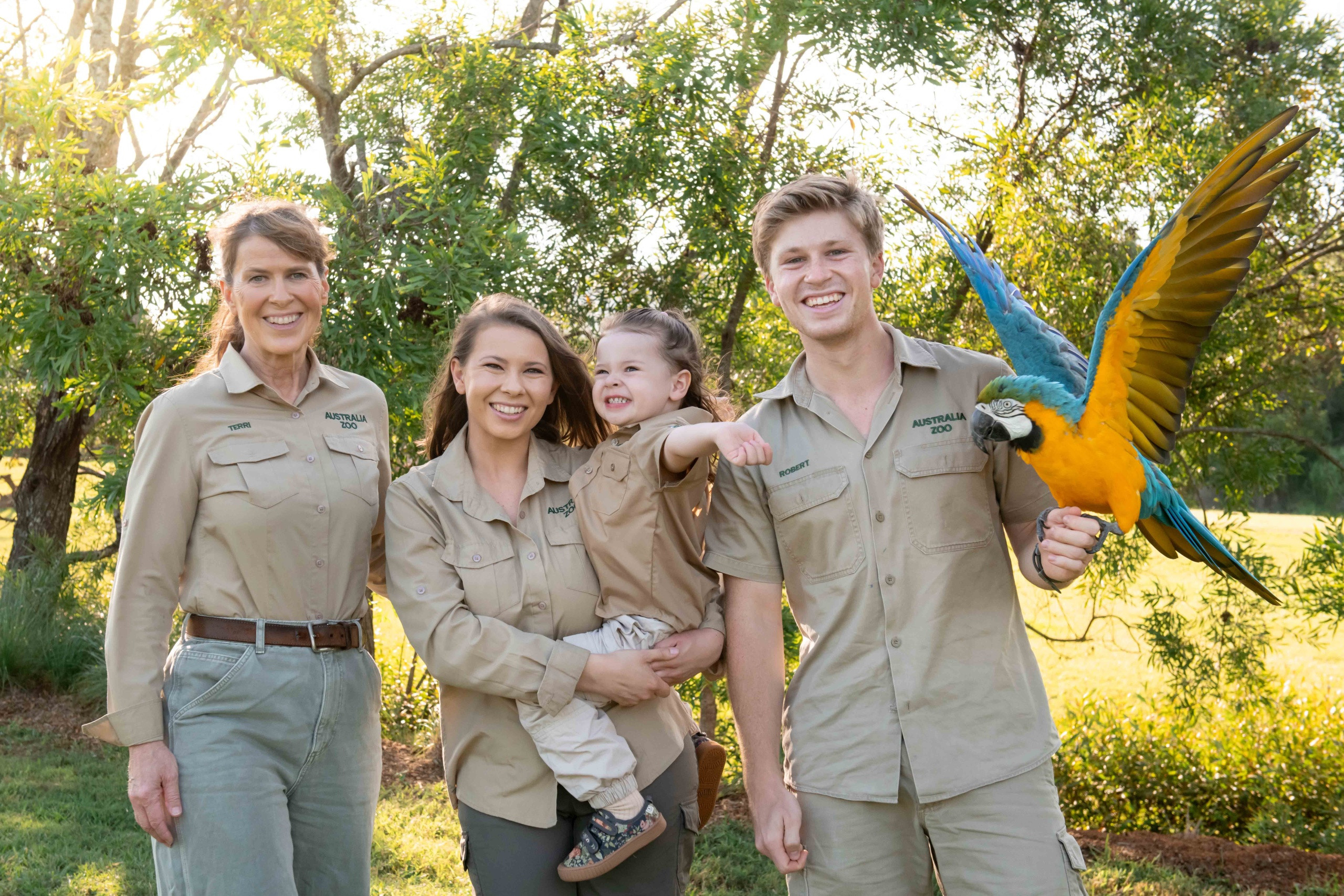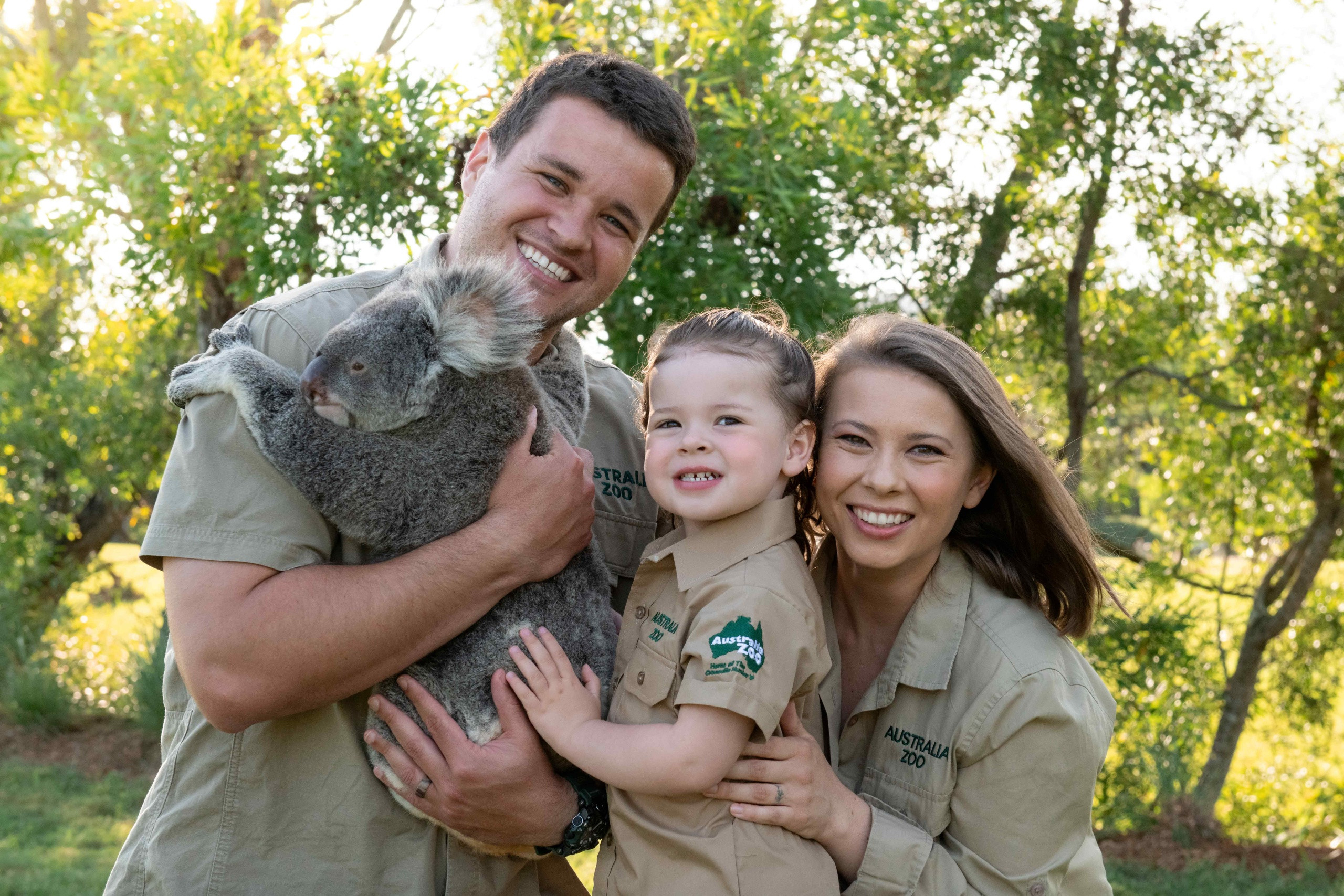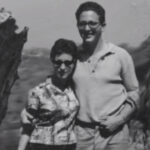Steve Irwin’s extraordinary journey into wildlife began in his childhood, growing up amidst the animals of the ‘Beerwah Reptile Park’ on Queensland’s Sunshine Coast. Founded by his parents in 1970, this modest two-acre park was home to a diverse array of Australian native fauna, including lace monitors, tiger snakes, freshwater crocodiles, magpie geese, and kangaroos. Steve’s mother, Lyn, was a dedicated wildlife rehabilitator, known for her skill in nurturing injured and orphaned animals back to health and releasing them back into their natural habitats. She often hand-raised kangaroo joeys in homemade pouches, showcasing her deep commitment to wildlife welfare.
From a young age, Steve displayed an exceptional connection with wildlife. Throughout the 1970s, he actively participated in his family’s field trips, assisting in the relocation of problem crocodiles, studying snakes in the Queensland deserts, and contributing to university bird surveys. These early experiences laid the foundation for his future as a global icon in wildlife conservation.

By the 1980s, the family wildlife park had doubled in size to four acres and was rebranded as the ‘Queensland Reptile and Fauna Park’. During this period, Steve’s expertise with crocodiles was recognized by the Queensland Government, leading to his involvement in the East-Coast Crocodile Management Program. As a volunteer, he captured and relocated over 100 crocodiles, some of which found a new home within the family’s expanding park. This hands-on experience solidified his reputation as a fearless and knowledgeable wildlife expert.
A pivotal moment arrived in 1991 when Steve assumed management of the wildlife park. Shortly after, his life took a romantic turn with the visit of Terri Raines from Eugene, Oregon. For both, it was an instance of love at first sight, marking the beginning of a remarkable partnership.
Terri’s background was equally rooted in animal care and business acumen. From 1979, she worked in her family’s construction business, taking over its management in 1984. In 1986, driven by her passion for wildlife, Terri established ‘Cougar Country’, a wildlife rehabilitation facility specializing in predatory mammals. Inspired by her father, Clarence, who frequently brought home injured wildlife found on Oregon highways, Terri honed her animal care skills. Furthering her expertise, she began working as a veterinary technician at an emergency veterinary hospital in 1989.

Her life trajectory changed course dramatically on June 4, 1992, when she married Steve and embarked on a shared adventure dedicated to wildlife conservation.
Instead of a traditional honeymoon, the newlyweds chose a crocodile rescue mission, an experience they decided to film. This footage became the inaugural episode of The Crocodile Hunter documentary series. Steve and Terri’s on-screen chemistry and genuine passion for wildlife resonated with audiences worldwide. Over the years, they produced over 300 episodes across various series including Croc Diaries, Croc Files, New Breed Vets, Ghosts of War, and Bindi: The Jungle Girl, captivating viewers and spreading their message of wildlife conservation globally.
The 1990s were a decade of significant evolution for the Irwin Family. With Steve’s parents retiring, Steve and Terri rebranded their expanding wildlife park to ‘Australia Zoo’. This new name reflected their broader vision for the facility as a global center for wildlife education and conservation.
In 1998, the Irwin family welcomed their first child, Bindi Sue Irwin, born on July 24th. Steve named her after one of his favorite crocodiles, and “Bindi” also means ‘young girl’ in several Indigenous Australian languages. Bindi quickly became a part of the family’s wildlife endeavors, growing up in the zoo and appearing in their documentaries, embodying the family’s passion from a young age.
The family expanded again with the birth of Robert Clarence Irwin on December 1, 2003. Robert inherited his father’s adventurous spirit and striking resemblance, developing a keen interest in photography, mountain biking, and reptiles. He too joined the family’s conservation work, ensuring the Irwin family legacy would continue into the next generation.
As the success of their filming ventures grew, Steve and Terri made a commitment to channel all earnings from filming and merchandise back into conservation efforts. From humble beginnings in an avocado packing shed, they established the Australia Zoo Wildlife Hospital. In 2004, Steve dedicated this world-class facility to his mother, Lyn, following her passing in 2000. The hospital stands as a testament to her legacy, rescuing, rehabilitating, and releasing over 10,000 native Australian animals annually.

Tragedy struck on September 4, 2006, when Steve Irwin passed away in an accident while snorkeling on the Great Barrier Reef. His untimely death was mourned globally, a testament to the impact he had made on the world of wildlife conservation.
Today, Terri, Bindi, and Robert continue Steve’s mission with unwavering dedication. They ensure that Steve’s legacy as the ‘Wildlife Warrior’ endures through their ongoing work at Australia Zoo, which now spans over 700 acres and employs over 500 staff. The Irwin family remains committed to Steve’s foundational principle of “Conservation Through Exciting Education”, inspiring future generations to become wildlife warriors themselves.

